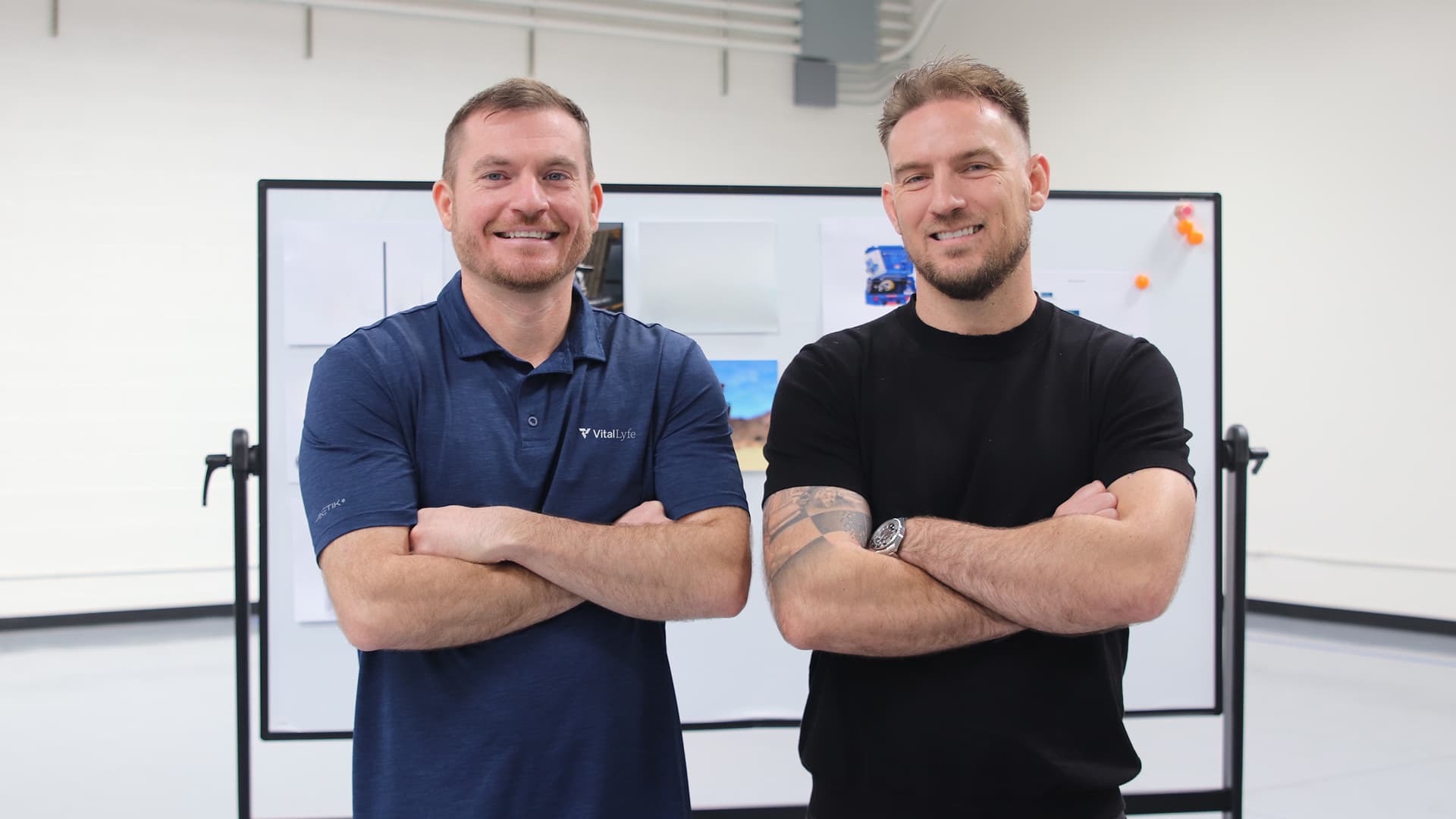Table of contents
Technology, as it has with countless other consumer-facing experiences, is transforming the fitness industry. Traditional gym memberships and fitness videos are giving ground to interactive, high-quality content that streams to just about any endpoint. Services like GC portfolio company ClassPass have untethered the consumer by making it easy to discover and attend boutique fitness classes across the globe. And at-home fitness products have figured out how to create community through gamification of cardio programs and shared virtual experiences.
We believe that technology and experiential innovations outside the traditional gym setting will continue to drive considerable growth in the overall fitness industry. And today, we are announcing our investment in Tempo, a team that has brought to market a 30 square foot micro gym for the home that produces accurate, real-time feedback on form, stability, posture, and balance during personalized cardio and weight training workouts.
The Importance of Weight Training
To date, most at-home fitness technologies have focused on engaging the consumer in cardiovascular exercise. As the Mayo Clinic suggests, a well-rounded fitness routine includes a minimum of at least two workouts per week that focus on muscle strengthening. Resistance training is key for building strength but comes with myriad other benefits: increased metabolism, lower blood pressure, improved cardiovascular health, and better blood sugar regulation.
Despite its benefits, some consumers find weight training intimidating and experts note that if not done properly, it can cause injury. And this is where Tempo’s AI platform impressed us the most. Using joint-mapping 3D sensors, Tempo is designed to guide users through their workouts and can identify and alert them — or in the case of live classes, the coach — if they are moving too quickly, positioned incorrectly, or need a different weight. This real-time feedback can help consumers feel confident in their at-home weight training. The platform’s sensors track progress through rep counting, recommending sequential classes, and weight increases/decreases to optimize outcomes.
The Rise of the At-Home Workout
The US fitness industry represents a ~$35B market that has been growing faster than GDP for the last 20+ years. There are roughly 57 million health club memberships in the US alone, representing 22% of the 15+ US population. Average fitness spend per member has also been on the rise; it was $490 in 2016 (equating to ~$41 per month). People that are more serious about fitness (or workout as a core part of their life) spend ~$150 per month on average.
The on-demand fitness market has also been on the rise, largely at the expense of full gym options. On-demand (online) fitness represented 7.7% of the $100B yearly fitness spend in 2016, up from 4.8% in 2014, and we expect the at-home fitness market will soon reach ~10% or $10B globally.
The Covid-19 pandemic has accelerated the rise of the in-home fitness regimen and 59% of consumers are reporting that they do not plan to renew their gym membership post-pandemic because they’ve found alternative ways to work out. We expect the at-home fitness market to quickly reach ~10% of the global fitness market (~$100B). While any shift due to the pandemic may be temporary and most data points are anecdotal, the introduction of new technology, internet-connected equipment, and apps has been a driving force of sustained growth for at-home virtual fitness. It’s that innovation that’s delivering the attention, energy, community, and motivation of in-person classes without leaving the house.
Our Investment in Tempo
Tempo was founded by Moawia Eldeeb (CEO) and Josh Augustin (CTO) who met while studying at Columbia University. Moawia’s founder story is one of incredible perseverance. After immigrating from Egypt with his family as a child, he educated himself almost solely through Khan Academy videos and via mentorship from coaches at the local YMCA, eventually working his way to Columbia. These coaches were instrumental in the eventual founding of Tempo, as Moawia looked to build a company that would help change others’ lives as his mentors had changed him.
The initial vision for Tempo was a B2B model in which Moawia and Josh sold smart mirrors to gyms to provide trainers and gym-goers with insight into their weight lifting exercise. While doing so, they built a significant database of movement patterns with over a million discrete exercise tags. The pair recognized the growing shift to at-home fitness, which has already taken hold of the ~$6B strength/equipment market and pivoted the company to a direct to consumer model in 2019. Powered by the movement data collected over many years, Tempo has delivered the first smart weight training system to deploy 3D motion sensors, combined with machine learning and artificial intelligence.
We are excited about the opportunity for Tempo’s strong founding team and product to capitalize on this growing market demand, and are proud to have them join the GC family today. While in the near-term we expect Tempo’s AI-driven product and premium content to provide a strong value proposition to customers, in the long-term we expect Tempo to become the go-to at-home fitness platform to connect personal trainers to their clients.
– Holly Maloney, Adam Valkin & Team GC









_r2_v1%20(1).jpg)
_r3_v1.png)

